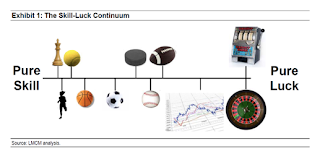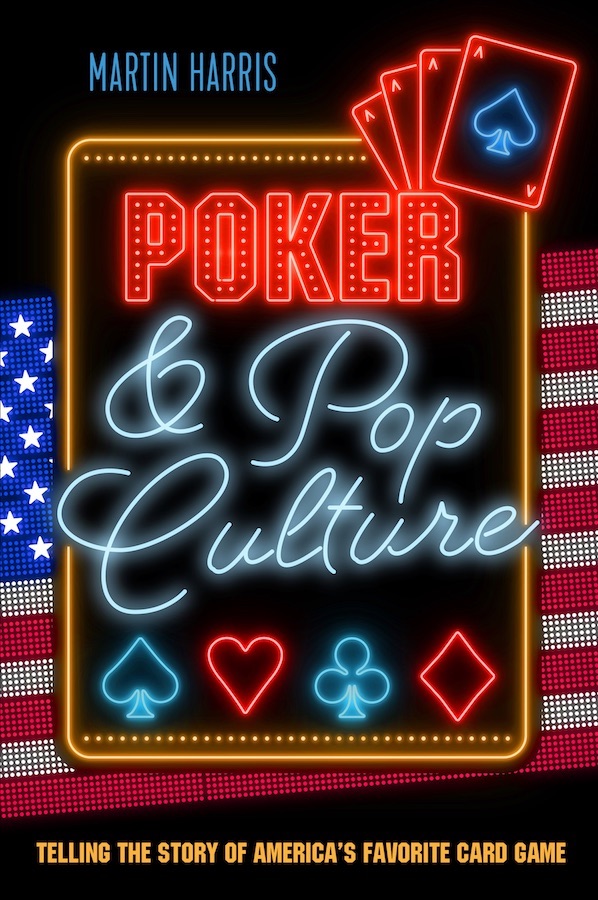Poker Wins One (Luck or Skill?)
 Have been a little preoccupied over the last few days, although I did see the news of that “poker ruled a game of skill” judgment that went down in New York yesterday.
Have been a little preoccupied over the last few days, although I did see the news of that “poker ruled a game of skill” judgment that went down in New York yesterday.A federal judge made a ruling in a case involving a man who’d been accused of running an illegal gambling poker club out of a Staten Island warehouse. The defendant, a businessman named Lawrence Dicristina, had been convicted last month, but Judge Jack Weinstein threw out the conviction because in his estimation the case had been made that poker “is not predominantly a game of chance” and therefore didn’t constitute gambling as defined by the Illegal Gambling Business Act (IGBA).
The case itself had nothing specifically to do with online poker. However, the IGBA has come up before in the context of arguments about online poker’s legality, including having been one of the laws some of those Black Friday defendants were charged with breaking last year. Thus did yesterday’s ruling understandably raise the eyebrows of those following the legislative fate of online poker in the U.S.
Indeed, late last year a couple of the Black Friday defendants, John Campos and Chad Elie, had filed a motion to have charges against them dismissed, with one of their arguments being that poker didn’t constitute “illegal gambling” as (inadequately) defined by the IGBA or the UIGEA, both of which they’d been charged with violating.
Of course, the pair were facing other charges, too, including some (money laundering, conspiracy to commit bank and wire fraud) for which the question of whether poker was or was not gambling didn’t matter so much.
The way things played out with Campos and Elie, their judge never did go so far as to rule one way or the other on the question of poker being a game of chance or skill. (In late March of this year, Elie pleaded guilty to bank fraud and operating an illegal gambling business, while Campos pleaded guilty to a misdemeanor charge.) However here we have a judge going all of the way back to the IGBA’s passage into law in 1970, taking into account the original intention behind that law as well as studies of Texas hold’em supporting the game’s skill component in order to conclude that he doesn’t believe poker -- or hold’em, at least -- is gambling as the IGBA defines it.
 I’ve yet really to do much more than skim the 120-page judgment, although am intrigued to read it more closely thanks especially to that early lengthy section providing “Evidence on Poker.” There one finds a thumbnail sketch of the history of poker in the U.S., an explanation of how to play hold’em, and expert testimony by an economist named Dr. Randal D. Heeb (with tables and charts) arguing how “the ten most proficient players earn dramatically more money than the ten least proficient players over the course of a year.”
I’ve yet really to do much more than skim the 120-page judgment, although am intrigued to read it more closely thanks especially to that early lengthy section providing “Evidence on Poker.” There one finds a thumbnail sketch of the history of poker in the U.S., an explanation of how to play hold’em, and expert testimony by an economist named Dr. Randal D. Heeb (with tables and charts) arguing how “the ten most proficient players earn dramatically more money than the ten least proficient players over the course of a year.”Dr. Heeb is referred to as having “acknowledged that poker falls in between chess, which he characterized as an almost pure game of skill, and roulette, which he characterized as a pure game of chance.” (By the way, that graphic appearing up top that similarly describes chess and roulette is not Heeb’s but also comes from the world of economics, having been created by a global investment management firm as part of a presentation on investing.)
A second expert witness, Dr. David DeRosa, “also a well qualified econometrician,” then tries to poke holes in some of Heeb’s conclusions, ultimately concluding “that Dr. Heeb has not proven that skill predominates over chance in poker.” The document goes on to discuss other rulings on the matter and legislative history, with Judge Weinstein ultimately deciding that “the rule of lenity compels a narrow reading of the IGBA, and dismissal of defendant's conviction.”
It’s worth pointing out the Poker Players Alliance’s involvement here, providing help to the defense including briefs and expert testimony. Also worth noting is how the ruling does in fact represent a first instance of poker being distinguished from other types of gambling in a federal court, being characterized as a game predominated by skill and thus not in this instance thought to be covered by the IGBA.
Even so, other judges have viewed the IGBA differently, not sharing Weinstein’s view and still considering poker as gambling as the law defines it. And there are other laws, too, besides the IGBA which could still be interpreted as prohibiting someone from offering a game of hold’em like Decristina did in his Staten Island warehouse.
In other words, it’s hard to say... did poker get lucky this time? Or did poker win one on its own merits? And will this outcome have any affect on how the next hand will play out?
(EDIT [added 8/24/12]: Grange95 has given us a terrific overview of the primary consequences of Weinstein’s ruling in a blog post over on the crAAKKer blog, “United States v. Dicristina—A Win for Poker Players (with an Asterisk).”)
Labels: *the rumble, IGBA, law, skill-vs.-luck













0 Comments:
Post a Comment
<< Home